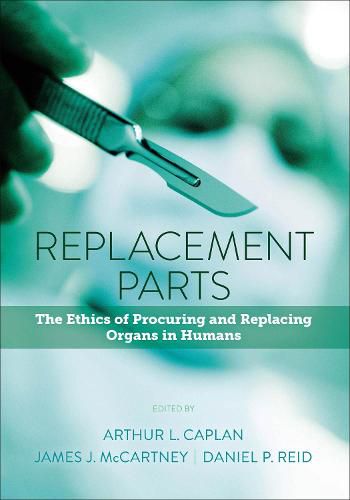Readings Newsletter
Become a Readings Member to make your shopping experience even easier.
Sign in or sign up for free!
You’re not far away from qualifying for FREE standard shipping within Australia
You’ve qualified for FREE standard shipping within Australia
The cart is loading…






In Replacement Parts, internationally recognized bioethicist Arthur L. Caplan and coeditors James J. McCartney and Daniel P. Reid assemble seminal writings from medicine, philosophy, economics, and religion that address the ethical challenges raised by organ transplantation. Caplan’s new lead essay explains the shortfalls of present policies. From there, book sections take an interdisciplinary approach to fundamental issues like the determination of death and the dead donor rule; the divisive case of using anencephalic infants as organ donors; the sale of cadaveric or live organs; possible strategies for increasing the number of available organs, including market solutions and the idea of presumed consent; and questions surrounding transplant tourism and gaming the system by using the media to gain access to organs. Timely and balanced, Replacement Parts is a first-of-its-kind collection aimed at surgeons, physicians, nurses, and other professionals involved in this essential lifesaving activity that is often fraught with ethical controversy.
$9.00 standard shipping within Australia
FREE standard shipping within Australia for orders over $100.00
Express & International shipping calculated at checkout
In Replacement Parts, internationally recognized bioethicist Arthur L. Caplan and coeditors James J. McCartney and Daniel P. Reid assemble seminal writings from medicine, philosophy, economics, and religion that address the ethical challenges raised by organ transplantation. Caplan’s new lead essay explains the shortfalls of present policies. From there, book sections take an interdisciplinary approach to fundamental issues like the determination of death and the dead donor rule; the divisive case of using anencephalic infants as organ donors; the sale of cadaveric or live organs; possible strategies for increasing the number of available organs, including market solutions and the idea of presumed consent; and questions surrounding transplant tourism and gaming the system by using the media to gain access to organs. Timely and balanced, Replacement Parts is a first-of-its-kind collection aimed at surgeons, physicians, nurses, and other professionals involved in this essential lifesaving activity that is often fraught with ethical controversy.